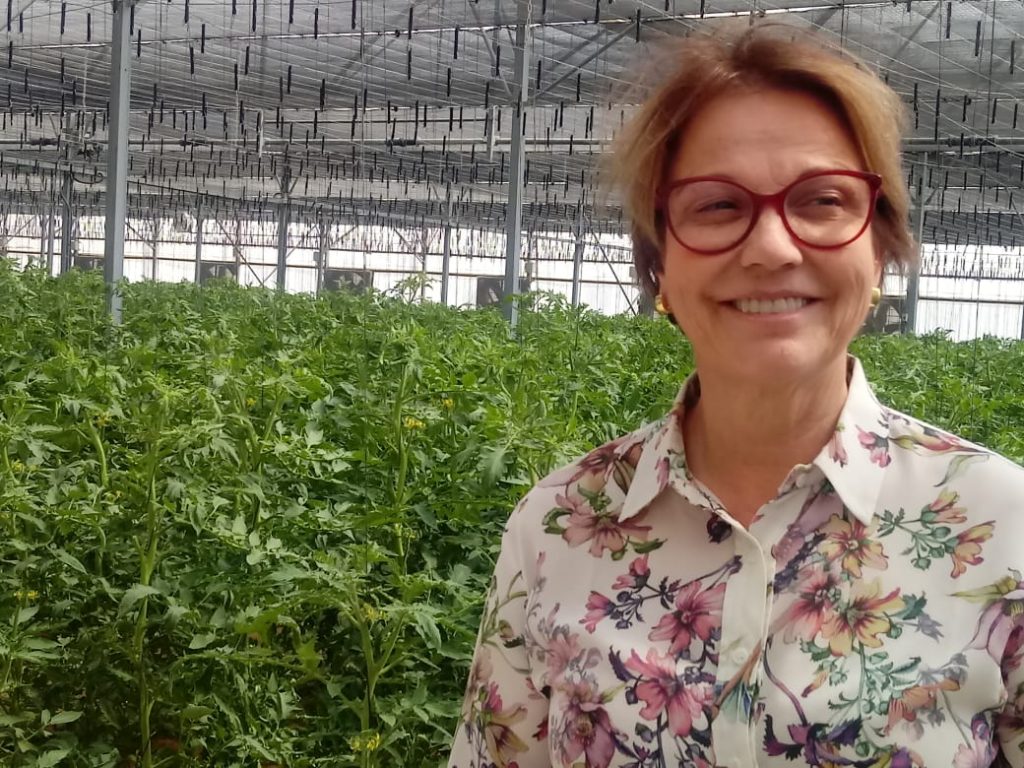Dubai – Brazilian businesspeople and organization representatives that participated in the mission of the minister of Agriculture, Livestock and Supply, Tereza Cristina, to four Arab countries believe the mission helped open doors for their products in the region. Appointments started on the 14th in Egypt, then Saudi Arabia, then Kuwait, and ended this Sunday (22) in the United Arab Emirates.
“A minister’s visit always raises the bar of a relationship and business and helps strengthen this long-standing partnership,” Brazilian Animal Protein Association (ABPA) executive director Ricardo Santin, who joined the mission up until Kuwait, told ANBA. He stressed the opening of the liquid and powdered egg market in Saudi Arabia, where an animal health agreement will allow Brazilian product in.
The minister also negotiated the opening of the beef market in Kuwait, which she expects to happen soon and has left businesspeople excited. Masterboi foreign trade director Márcio Rodrigues says that the company sees many opportunities in Kuwait. The company already has established exports in other countries like the UAE and Egypt. “These visits always open new doors,” he said.
Cdial Halal, a halal product certification company, accompanied the opening of markets. “We certify companies, so their success brushes on us too. Our job is not to expect things to happen. We help convincing, explaining, spreading the Brazilian product, the respect Brazilian companies have for the Islamic precepts,” the company’s executive director Ali Saifi told ANBA. He said the mission showed the respect between Brazil and the Arab countries.
Marfrig Dubai manager Jalal Suliman said he got to establish more relationships and connections with clients and governments of the countries the mission went through. He also has good expectations for the opening of Kuwaiti market and says that the company is just waiting for the market to be cleared to start selling, since it used to sell well in the region before the market was closed in 2013.
Transport-Roads Coordination Secretariat Program director Renan Brandão also participated, presenting investment projects to the Arabs, particularly in agribusiness logistics. He said it was an opportunity to resume connections made in 2017 that could not be followed up and believes that the railroad projects caught some attention. “The great change in logistics will be if we could implement railroad concessions that change a bit of the transport network in the country,” said Brandão.
Congressman Alceu Moreira (MDB), president of Agribusiness Parliamentary Front, ended the mission thinking on the next steps. Moreira wants to bring together people involved in the visit to discover how to bridge gaps in breaking into markets, such as bureaucratic issues and the trade of non-commodity products not supported by large corporations, such as cooperatives. “We noticed here that we have a market for more than a hundred products,” he said. “We have 12 million people unemployed (in Brazil) and here’s a huge market where we cannot get because we had processes sitting on the shelf since 2013, 2016,” he said.
Arab Brazilian Chamber of Commerce president Rubens Hannun is also looking into how to follow up the measures, which he says is important so that the work doesn’t generate subpar results. “On the Brazilian side, the mission was productive since everyone could see how big the market is and diagnose what we could work on to tap into this potential at every level, from strategic to tactical,” he said. “On the Arab side, the mission was also good; they put forth their opinions on the relations between the countries, their needs, their current stands. After all, the connection was there and resulted in a closer relationship,” he told ANBA.
Minister Tereza Cristina noticed an important change in the Arab position on food security. “Everyone manifested some wish for strategic partnerships with Brazilian companies wanting to come here to process their foodstuffs, to bring products from Brazil, but especially to produce something in the Gulf countries,” she said. The minister said this must be worked on by the Brazilian government, the Ministry of Agriculture and the Arab Chamber. “So that we can bring together businesspeople that export or want to export here and show them the new food security policy they are implementing,” the minister said.
Translated by Guilherme Miranda




